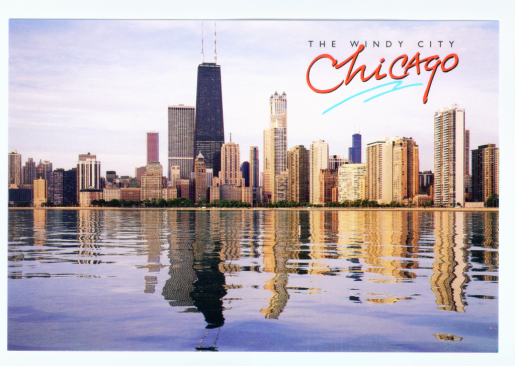Was Chicago First Nicknamed the “Windy City” Because They Talk Too Much?
Here is the first in a series of examinations into urban legends related to newspapers and whether they are true or false.
NEWSPAPER URBAN LEGEND: Chicago was first dubbed “the windy city” as a reference to how much they talked.
It’s not so much of an occurrence nowadays, but years ago, it was quite common for newspapers from different cities to rile each other up by writing negative things about each other. These little “wars” helped drive circulation, as it became a matter of city pride for people to read in THEIR local paper about how stupid the people were in those OTHER cities. This would especially pick up when there was a debate over where to hold a major event. In the early 1890s, one such event was the 1893 World’s Fair, which was set to celebrate the 400th anniversary of Christoper Columbus “discovering” America. It was a big to do to get the Fair for your city, and there was a big rivalry between the New York newspapers and the Chicago newspapers over who should get the Fair.
One newspaper editor in particular, Charles Dana, of the New York Sun, was very much hated in Chicago for all the nasty things he said about the city. One of these things, allegedly, is that Chicago should be called the “Windy City,” not for the winds off of Lake Michigan, but because they TALKED so darn much!
“The Windy City,” of course, remains the practically official nickname for Chicago. But did the name really come about from an insult?
The answer is a surprising yes so far.
The Dana thing looks like it is wrong. Not only was the term in use for years before the 1890s, but there is no actual proof that Dana ever even USED the term! He said plenty of rotten things about Chicago, but no one has been able to find him once actually using the term “Windy City.”
This, then, has led to people thinking that the more obvious origin for the nickname (that Chicago is a windy city, hence it being called “The Windy City”) is the correct one. And that COULD be true, but oddly enough, as of right this moment, the initial usage of the term that has been found and corroborated is ALSO used as an insult!
The great word historian, Barry Popik, discovered a number of references to Chicago as “the windy city” in the Cincinnati Enquirer in the late 1870s/early 1880s. However, the very first reference he found, and the earliest reference ANYone has found, is about a tornado that hit Chicago in May 1876, to which the Enquirer wrote the headline “That Windy City.”
So it’s about a tornado, right? Well, yes, but not entirely. Remember when I said that newspapers would talk crap about each other back in the day? That was the case for them Midwest papers, as well, and so the Enquirer were talking trash about Chicago DURING THEIR REPORTING OF A TORNADO! That’s some hardcore smack talk!
As Popik recalled, “The Cincinnati Enquirer’s use is clearly double-edged. They used the term for windy speakers who were full of wind, and there was a wind-storm in Chicago. It’s both at once.”
The same article says, that the tornado was unable to damage downtown Chicago too much because the buildings “were so heavily weighed down with mortgages that no whirlwind could affect them.” Damn, Cincinnati!!!
The problems with Cincinnati and Chicago went back much further than that, and throughout the late 1860s, Cincinnati’s go-to insult for Chicago was that Chicago was a “city full of wind.” The windy city stuff just came later on.
So yes, it does seem like Chicago was dubbed “the windy city” due to people thinking that they talk too much, but it is not the famous version of the story involving New York and Chicago.
The legend is…
STATUS: True
Thanks to the great Barry Popik for the information! Check out his whole entry on “The Windy City” on his website here.
Feel free (heck, I implore you!) to write in with your suggestions for future installments! My e-mail address is bcronin@legendsrevealed.com.







interesting for always just figured that chicago got the windy city name from the winds did not known it was because some one thought those there talk so much like a wind storm.